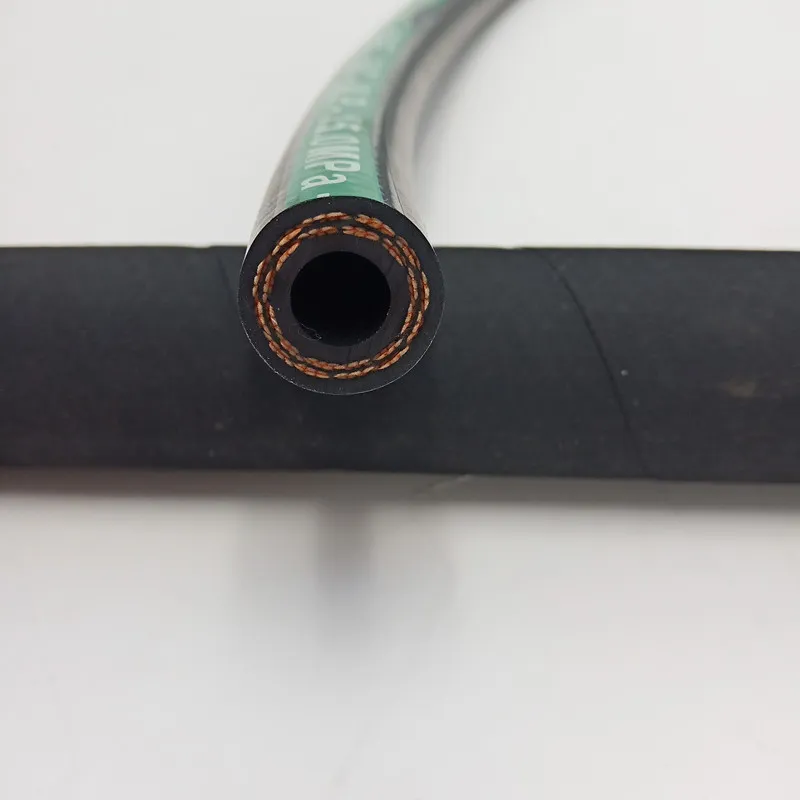Nov . 10, 2024 12:58 Back to list
Purchase Non-Conductive R7 Hose for Reliable Performance and Safety Applications
The Benefits of Using Non-Conductive R7 Hose in Various Applications
In today's industrial landscape, safety and efficiency are paramount concerns. One of the essential components that contribute to both of these factors is the type of hoses used in various applications. Among the numerous options available, the non-conductive R7 hose has emerged as a preferred choice for many industries. This article will explore the many benefits of using non-conductive R7 hoses and their applications, highlighting why they should be considered for your operations.
What is Non-Conductive R7 Hose?
Non-conductive R7 hose is specifically designed to handle hydraulic fluids, oils, and other materials in a wide range of applications. What sets the R7 hose apart from other types of hoses is its non-conductive property, which means it doesn’t allow electric current to pass through. This characteristic is particularly crucial in environments where there is a risk of electrical hazards.
Standard R7 hoses are typically made from thermoplastic elastomers that are lightweight and flexible, making them easy to handle. The non-conductive feature adds an extra layer of safety, making this hose ideal for use in industries such as construction, manufacturing, and mining, where both hydraulic and electrical systems are prevalent.
Safety First The Importance of Non-Conductivity
The non-conductive aspect of R7 hoses holds immense importance in various applications. In workplaces where employees are exposed to high-voltage equipment or where electric tools are used, the risk of electrical shock is a significant concern. By using non-conductive hoses, companies can mitigate this risk and ensure a safer working environment.
Non-conductive hoses are tested to meet stringent safety standards, which is fundamental for industries that handle hazardous materials. In many regions, regulations dictate that equipment used in proximity to electric currents must be non-conductive to prevent accidents. As such, implementation of non-conductive R7 hoses aligns with compliance regulations, ensuring that businesses uphold safety standards.
Durability and Performance
Besides safety, non-conductive R7 hoses are designed for durability. They can withstand high temperatures and pressure, making them suitable for various challenging environments. These hoses are resistant to abrasion, oil, and weathering, which enhances their longevity. Consequently, the lower maintenance requirements translate into reduced downtime and cost savings for businesses.
buy non-conductive r7 hose

The flexibility of non-conductive R7 hoses ensures easy installation and maneuverability
. Their lightweight design enables quick handling, which is particularly advantageous in industries that require rapid deployment of equipment.Versatile Applications
The versatility of non-conductive R7 hoses is one of their standout qualities. They can be used in an array of industries, including
1. Construction R7 hoses are commonly used to deliver hydraulic fluids to construction equipment while ensuring that workers are protected from electrical hazards.
2. Agriculture Farmers use non-conductive hoses for irrigation and liquid fertilizer applications, where both water and various liquids need to be transported safely.
3. Manufacturing Non-conductive R7 hoses are suitable for assembly lines, where they can convey hydraulic fluids in machinery without the risk of electrical conductivity.
4. Mining In mining operations, non-conductive hoses are crucial for transferring fluids in electrically charged environments.
Conclusion
In summary, the non-conductive R7 hose is an essential component in various industries, primarily due to its safety features, durability, and versatility. By investing in non-conductive hoses, businesses can enhance workplace safety, comply with regulations, and improve operational efficiency. As industries continue to evolve and prioritize worker safety, the demand for non-conductive hoses will undoubtedly increase. Choosing the right type of hose is not just about function; it’s also about ensuring a secure working environment for all employees. If you're looking to upgrade your equipment, consider sourcing non-conductive R7 hoses to fulfill those requirements while keeping safety at the forefront of your operations.
-
Best Four Steel Wire Spiral Hose Hydraulic R12 – Durable High-Pressure Hose Manufacturer
NewsJul.08,2025
-
High-Quality 1/4 Hydraulic Hose – Soft, Flexible & Durable Rubber Hoses for Industrial Use
NewsJul.08,2025
-
1 1 2 Inch Hydraulic Flexible Hose - Durable, Reliable, High-Pressure Solutions
NewsJul.07,2025
-
High-Quality 1 2 Rubber Hose - Durable, Flexible Hydraulic Solutions
NewsJul.07,2025
-
Discover SAE Hydraulic Hose Types - High Quality & Durable Hoses from Leading Factory Supplier
NewsJul.06,2025
-
High Pressure Wire Hydraulic Rubber Hose Supplier Durable & Reliable 1SN Hose Solutions
NewsJul.06,2025
